16 Nov 2016
More than one billion people – around 16 percent of world’s population - regularly suffer the debilitating symptoms of migraines.
Those who have migraines generally experience severe, recurrent headaches on one side of the head, often accompanied by nausea and sensitivity to light and sound.
It is estimated that in America alone, employers lose more than USD 13 billion each year as a result of the 113 million work days lost due to migraines.
Yet despite the disease’s prevalence, research into it is comparatively insignificant, particularly here in China.
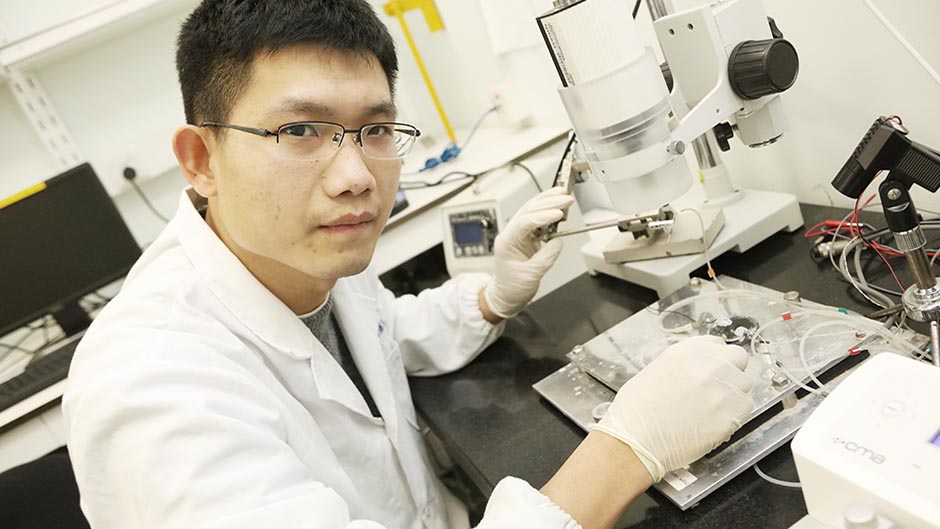
But Fan Bu (pictured above), a PhD student in the Centre for Neuroscience and the Department of Biological Sciences at Xi’an Jiaotong-Liverpool University, is carrying out work that could have a significant impact on drugs developed to prevent and treat this debilitating disease.
In the past, scientists believed that migraines were linked to the changes of blood flow in the brain. It is now believed, however, that migraines are also caused by inherited abnormalities in genes that control the activities of certain brain cells.
Fan’s doctoral project has revealed a previously unknown mechanism, involving a protein within brain cells, which plays a key role in a migraine starting and developing.
When the protein that Fan has identified, named sarcoma family kinases, is activated in cells in the brain it can lead to the neurological responses that may trigger migraines.
“We knew that this protein existed and it was involved in other diseases,” says Fan Bu, “but we had not known its significant involvement in migraines until recently, when I studied the underlying mechanism of a key subunit of a cell membrane protein associated with migraine that had been identified in the early stages of my PhD project.”
It is thought that if the activity of this enzyme can be prohibited, migraines may be prevented from occurring at all. The discovery has potential importance in identifying targeted drugs for preventing migraines.
“There are currently no cures for migraines, the most effective thing is for people to prevent them from happening,” Fan says. “My work will contribute to the ongoing drug development that might ultimately discover cures, which is very exciting.”
The significance of Fan’s work is such that it has been recognised by distinguished scientists around the world.
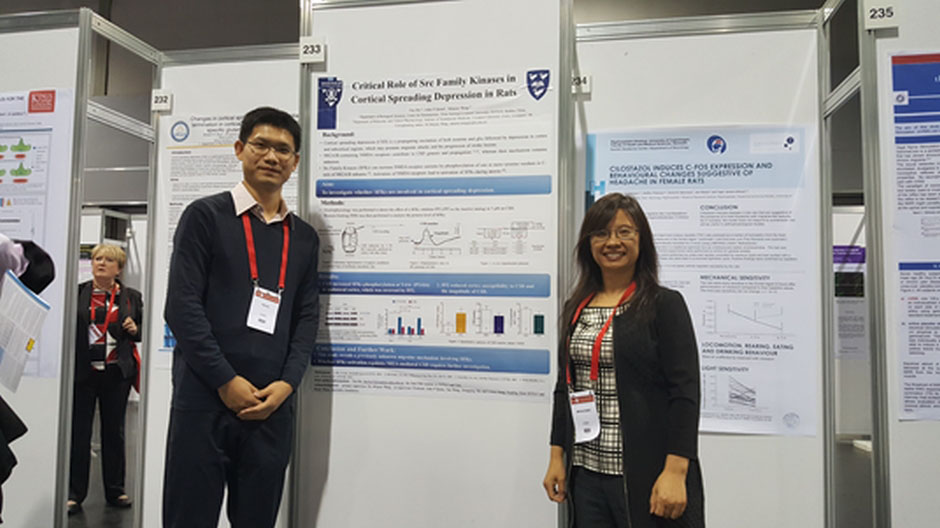
This year, he received a competitive junior travel grant, awarded by the International Headache Society (IHS), to attend the fifth European Headache and Migraine Trust International Congress (EHMTIC) in Glasgow in the United Kingdom. He presented his work at the event (pictured above) and says he gained much “valuable” information from those present.
“Receiving comments on my work from researchers who are also investigating migraines as well as proposals for future collaboration is wonderful,” says Fan. “It has helped to put the Centre for Neuroscience, XJTLU and China on the world map for migraine research.”
Advancing migraine research in China
Fan’s work has been carried out under the supervision of Dr Minyan Wang (pictured below), associate professor and director of the Centre for Neuroscience at XJTLU, currently the only research centre in China dedicated to migraine research and drug development.
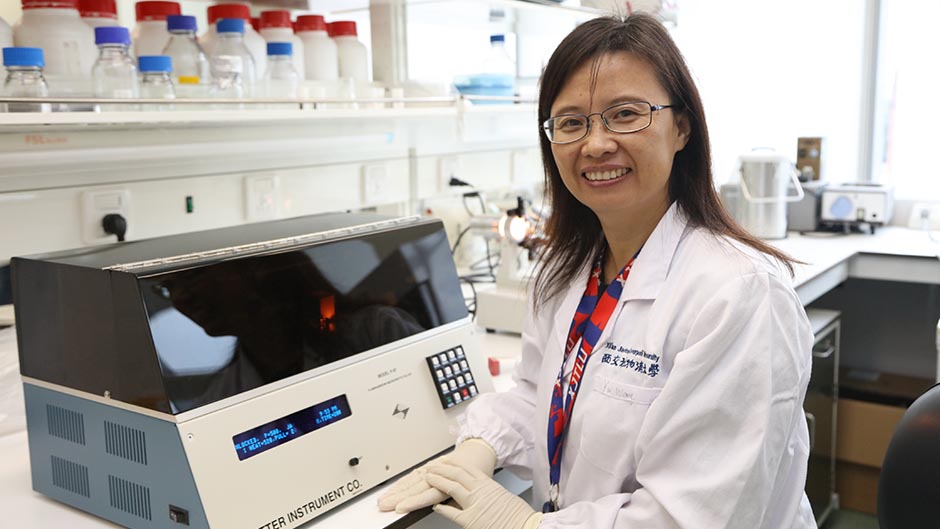
Dr Wang herself is an experienced researcher in the field, who began working on molecular mechanisms of migraine pain during her PhD, which she completed in 2004 at the University of Bradford in the United Kingdom.
Having come to XJTLU from the UK in 2011, she is one of the few women scientists working in the field of migraine research in China.
The Centre for Neuroscience, jointly founded by XJTLU and charitable foundation Wangwenli in 2013, has state-of-the-art facilities, as well as talented researchers, such as Fan, working on a number of projects across a variety of migraine research systems and migraine models.
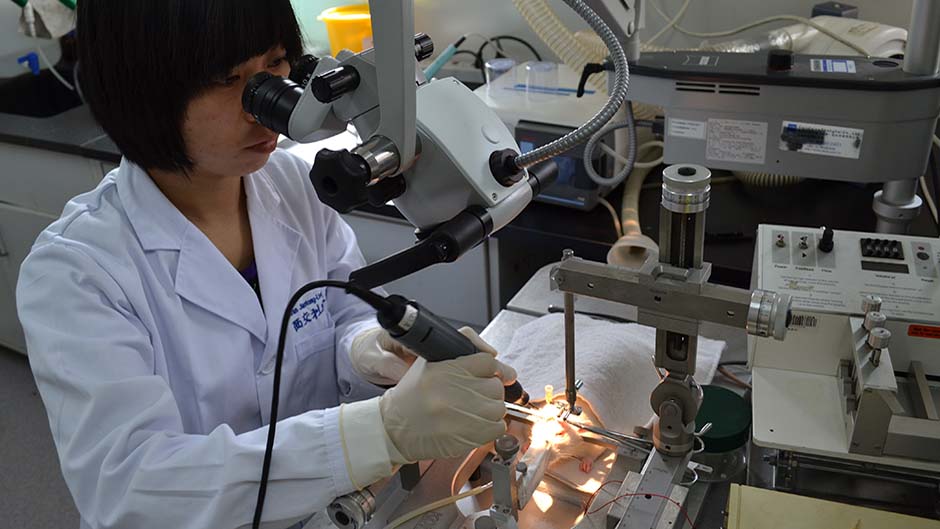
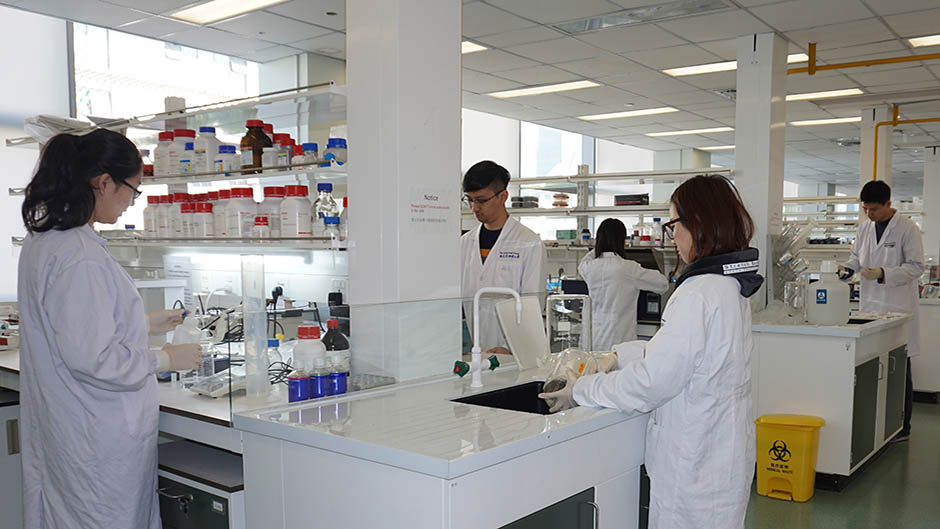
It has already had significant research output in terms of the number and impact of its research publications, and has invited international collaboration with researchers in the USA, the UK and Italy, pharmaceutical companies, and colleagues in XJTLU’s Department of Chemistry.
“We’re not working in isolation,” says Dr Wang. “It’s important to communicate with other academics and centres around the world to push the research further for subsequent collaboration with industry to develop target drugs.”
While they don’t suffer from migraines themselves, Dr Wang and Fan recognise the potential impact theirs, and work like theirs, could have on countless people’s lives.
“Ultimately all the work we do in the Centre for Neuroscience is about making a difference to the people who suffer from this disease,” says Dr Wang.
“I’d very happy if our work leads to breakthroughs in better understanding migraines and the development of drugs to prevent this disease.”
16 Nov 2016
RELATED NEWS
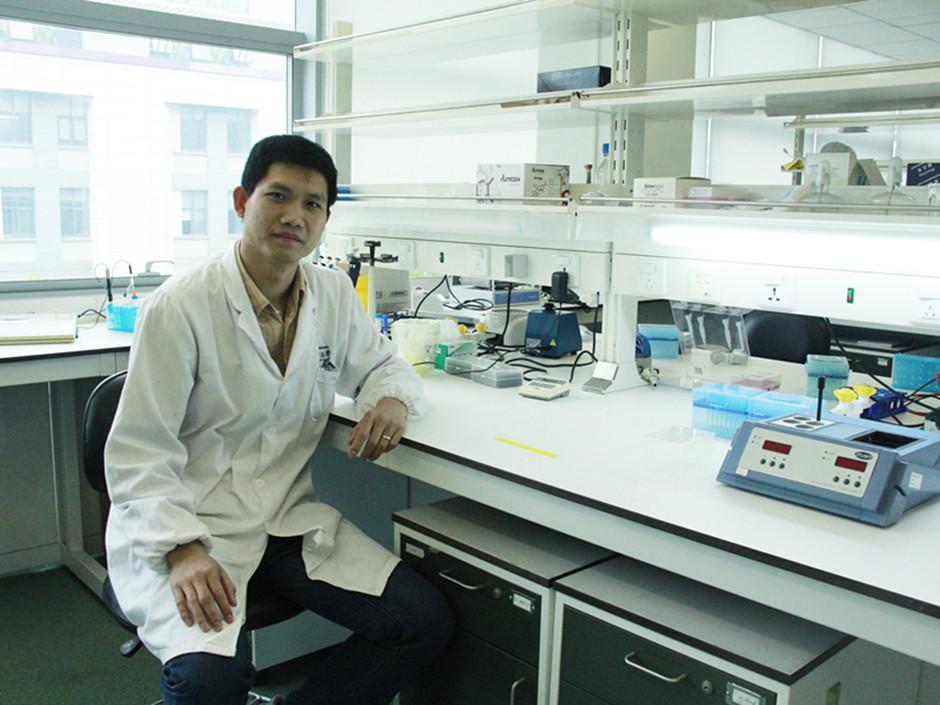
PhD student awarded junior travel grant from prestigious international society
Fan Bu, a final year PhD student in the Department of Biological Sciences, Centre for Neuroscience, at Xi’an Jiaotong-Liverpool University (XJTLU), received...
Learn more








